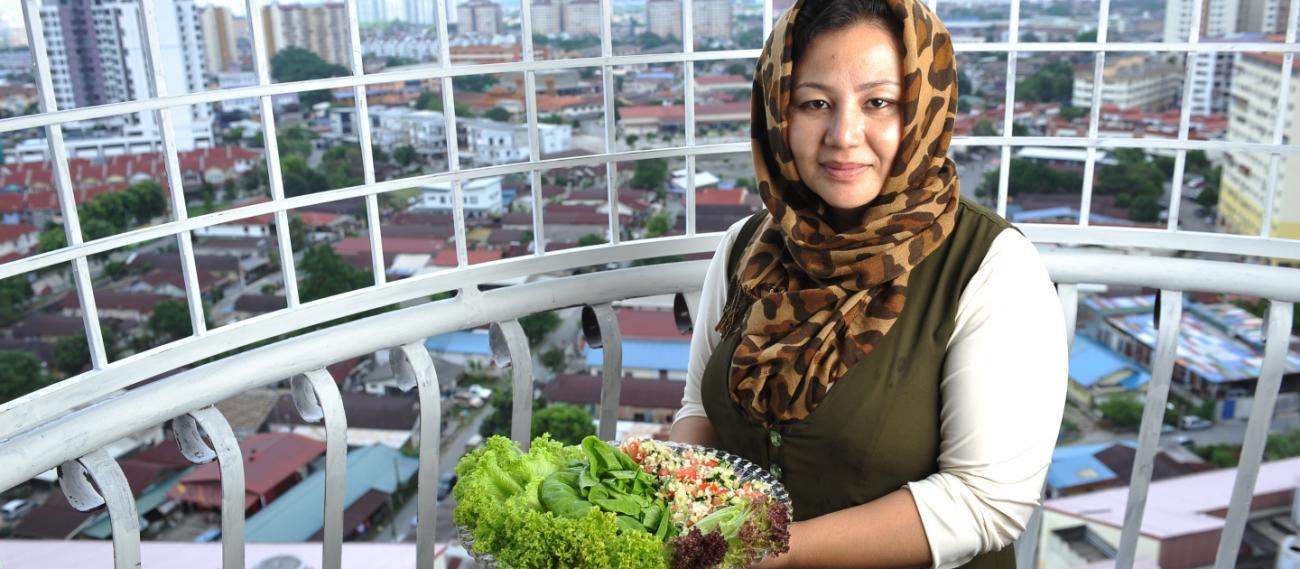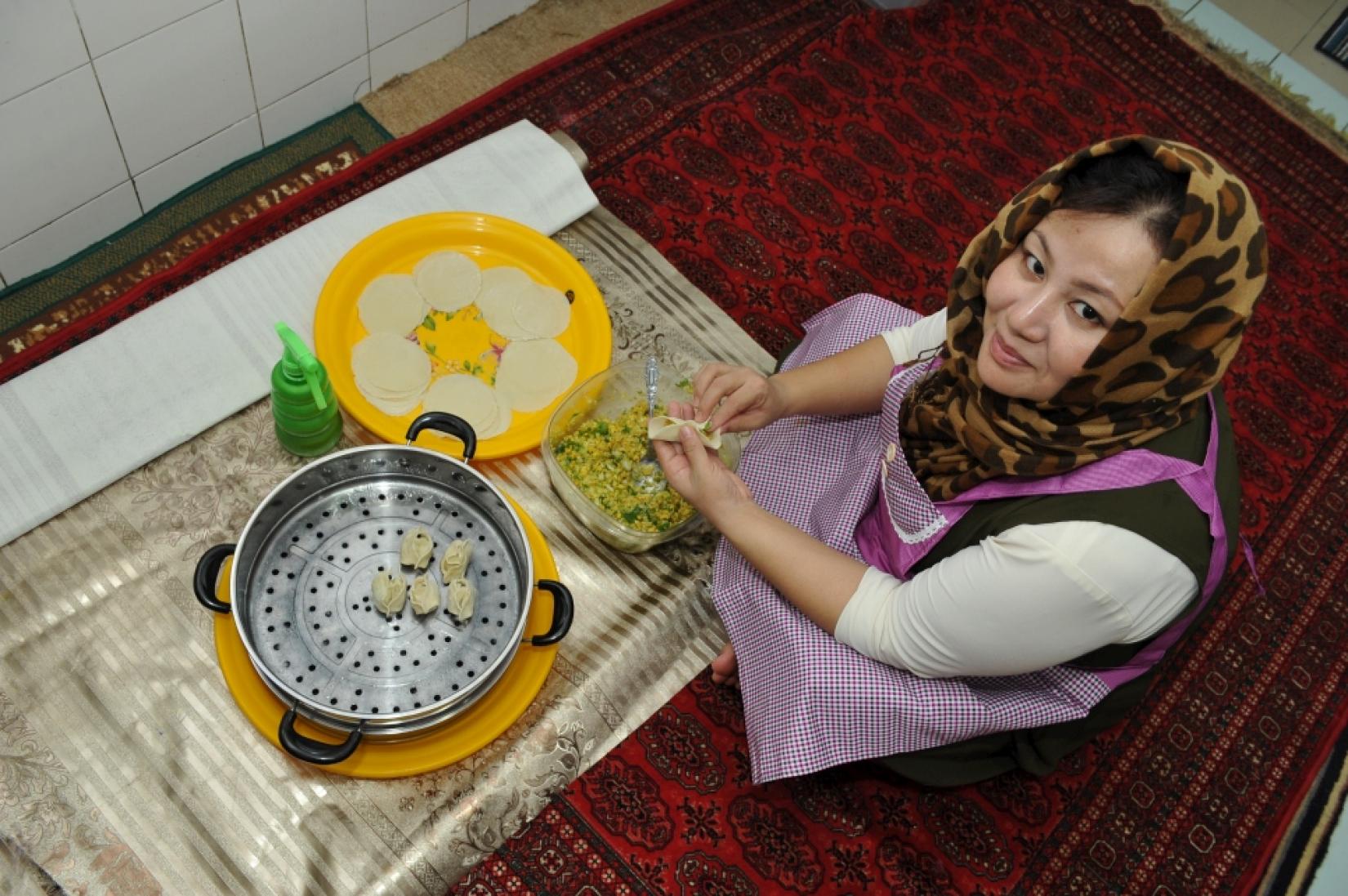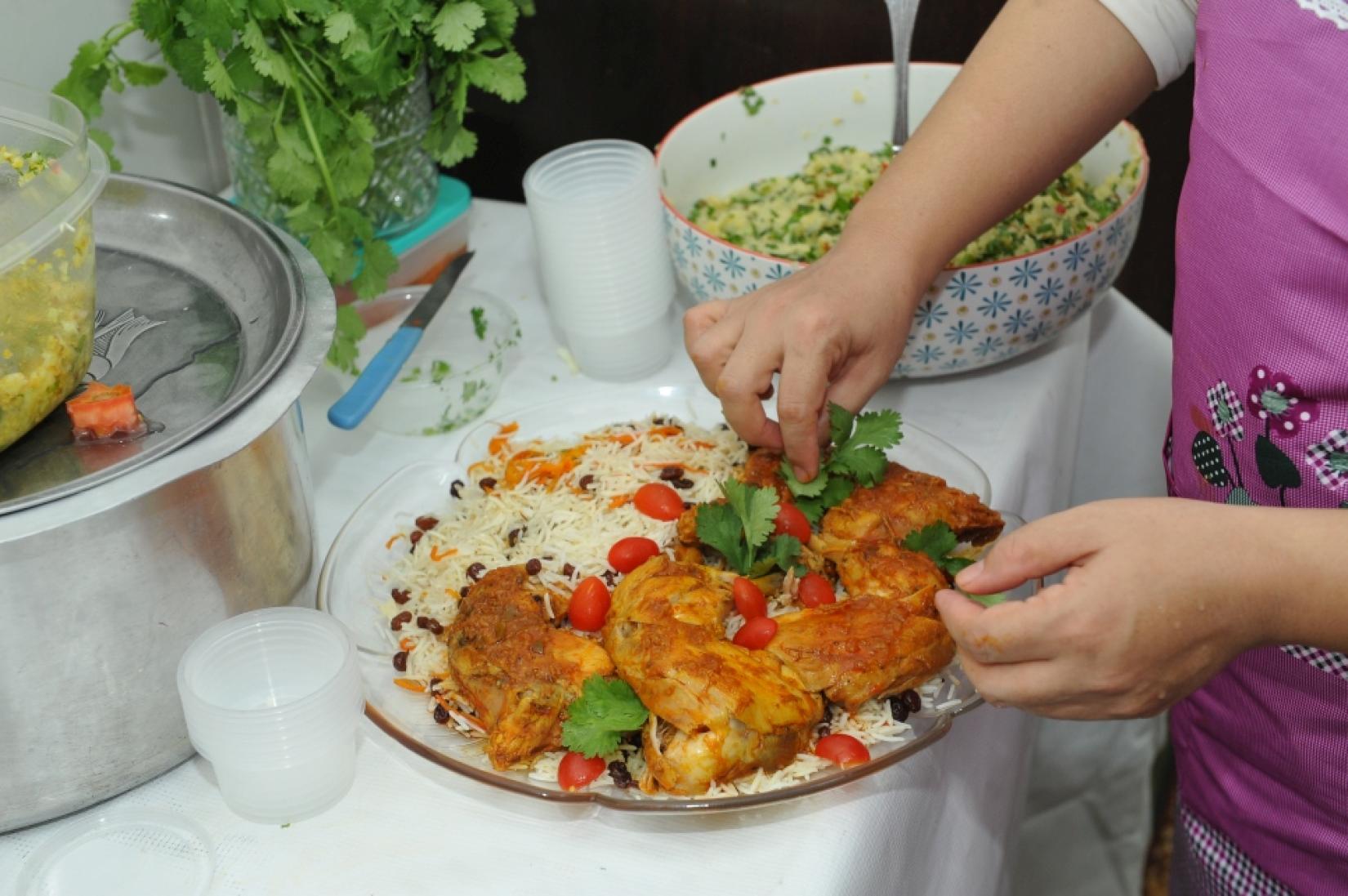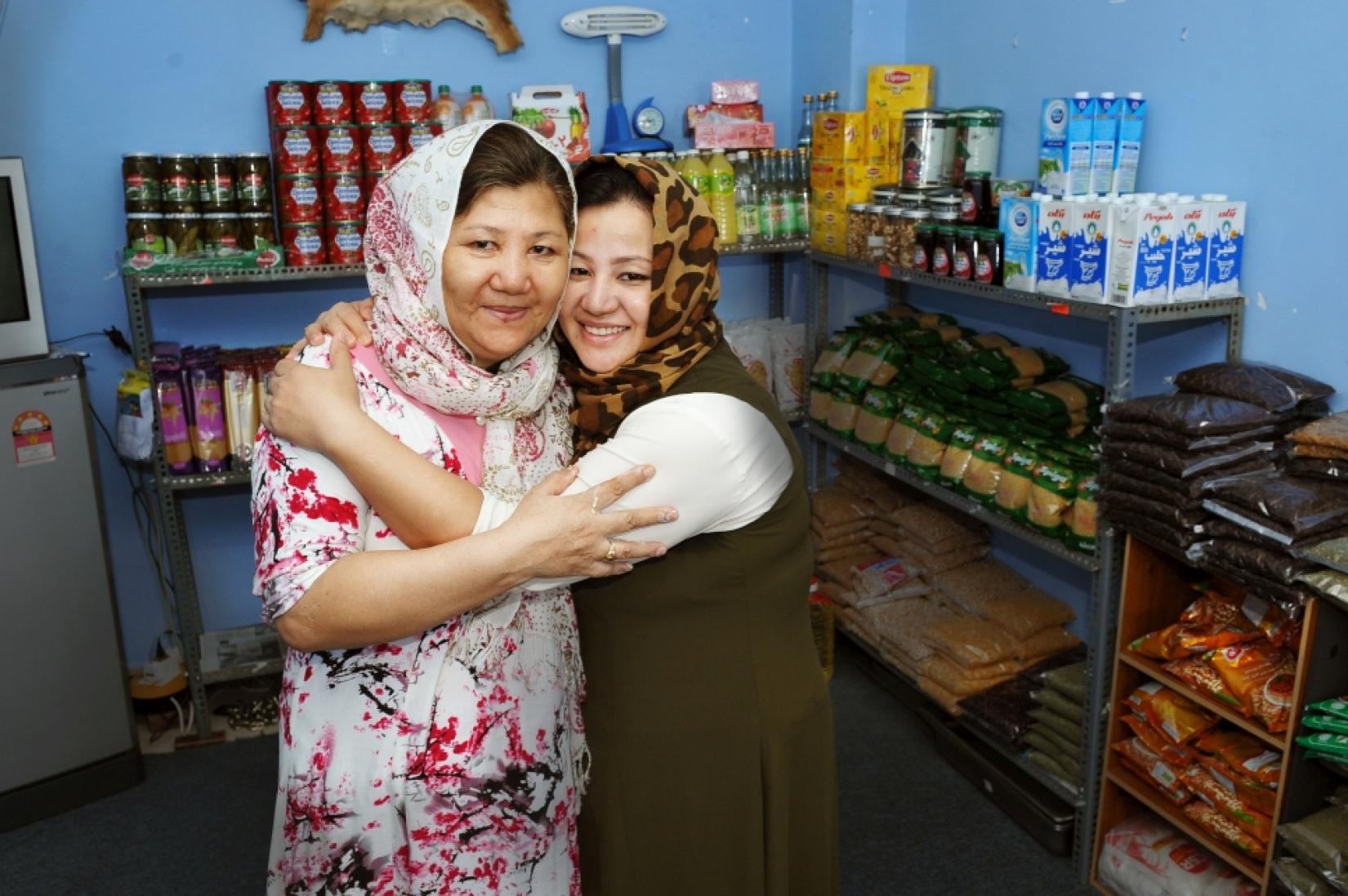When Food Is A Way to Make A Difference

Food is more than sustenance for this Afghan refugee family; it’s their means of livelihood and their way of giving back to the community.
When Afghan refugee Shakira and her family came to Kuala Lumpur five years ago, they knew they’d be starting anew and everything would be different for the whole family. But by their third day in Malaysia, it was clear that what would remain unchanged for them was their food.
In the initial days after arriving, they’d been staying in a hotel and eating out, but all that Shakira’s young children wanted was their mother’s home cooking.
“They couldn’t eat what was served in the restaurants here. The food was too oily and spicy,” recalls Shakira. “They wanted to eat what they were used to.”
Their first rented space was a makeshift room on a friend’s balcony, but Shakira had access to the kitchen and was able to cook for her children.
“I learnt to cook when I was nine, just like my mother did. Everyone knows how to cook in our community,” says Shakira. “The Afghans like their stomachs, so we have many different dishes.”
Shortly after arriving in Malaysia, Shakira’s father was diagnosed with heart disease. Shakira realised that she needed to earn some money to pay for his treatment.
Shakira was a trained nurse in Afghanistan, but as refugees are unable to work legally in the country, she could not get work as a nurse in Malaysia. She decided instead to make use of her culinary skills to earn a living in Malaysia.

Shakira had attended a year-long course run by UNHCR to help refugees find opportunities for self-reliance. She would sometimes cook for her classmates, and they loved her food. Their encouragement gave Shakira the confidence to start making a living through catering.
Although her kitchen was sparse and they were sharing an apartment with other families, Shakira forged ahead with her mother’s help. Venturing out on her own was a risk that paid off for Shakira.
“I can earn an income and look after my children at home,” says Shakira who had her third child last year and is now able to afford to rent an apartment just for her family.
Shakira cooks Afghan dishes such as mantu (chicken dumplings), bolani (stuffed turnovers) and Qhabeli pilau, and curry chicken.

Even more Malaysians now know of Shakira’s delicious offerings after her collaboration with Picha Eats, a Malaysian social enterprise that promotes and markets food from the refugee community in Malaysia.
Shakira’s mother, who also attended the livelihoods course by UNHCR, started a small project in their apartment selling groceries to other refugees living nearby. She started with an initial capital of RM500 which she used to stock up on provisions.
“At first, we bought the ingredients for ourselves, for the catering service. But the other Afghans here came and requested that we buy for them. So, we decided to use a room in the apartment as a shop.
We only sell mostly to the Afghan community here,” says Shakira, adding that there are over 30 Afghan families living in their vicinity.
On the shelves of her mother’s grocery room are staple Afghan ingredients such as rice, pasta, raisins, dried mint, beans, tomato paste and dairy products. They try to source for their goods directly from suppliers so they could offer the lowest price possible, and they keep a minimal profit after deducting transportation costs.
Shakira says her family’s grocery business is more a community service than a profit-oriented business. Having gone through the struggles of feeding her family, she empathises with her fellow refugees’ hardship.
“Many Afghan families here have problems because of food. It’s expensive to eat out and the children are also not used to the food outside. There is a family with three children. One of their children suddenly had paralysis on her legs because she didn’t have enough to eat.

“So we tell the other Afghan families to come and take the food, so that the children do not go hungry or are malnourished. They can take the groceries on credit. They pay in instalments when they can,” says Shakira.
Opening the shop has also been beneficial for her father. As he has a weak heart, he is often cooped up at home, which led to depression.
“There are people coming and going to our home now. My father is happy he can help my mother. The shop has cured my father of his depression,” says Shakira, who is an only child and close to her parents.
For Shakira and her family, food has become more than just sustenance. It is their means of coping and making a living in Malaysia, while giving back to their own community.





